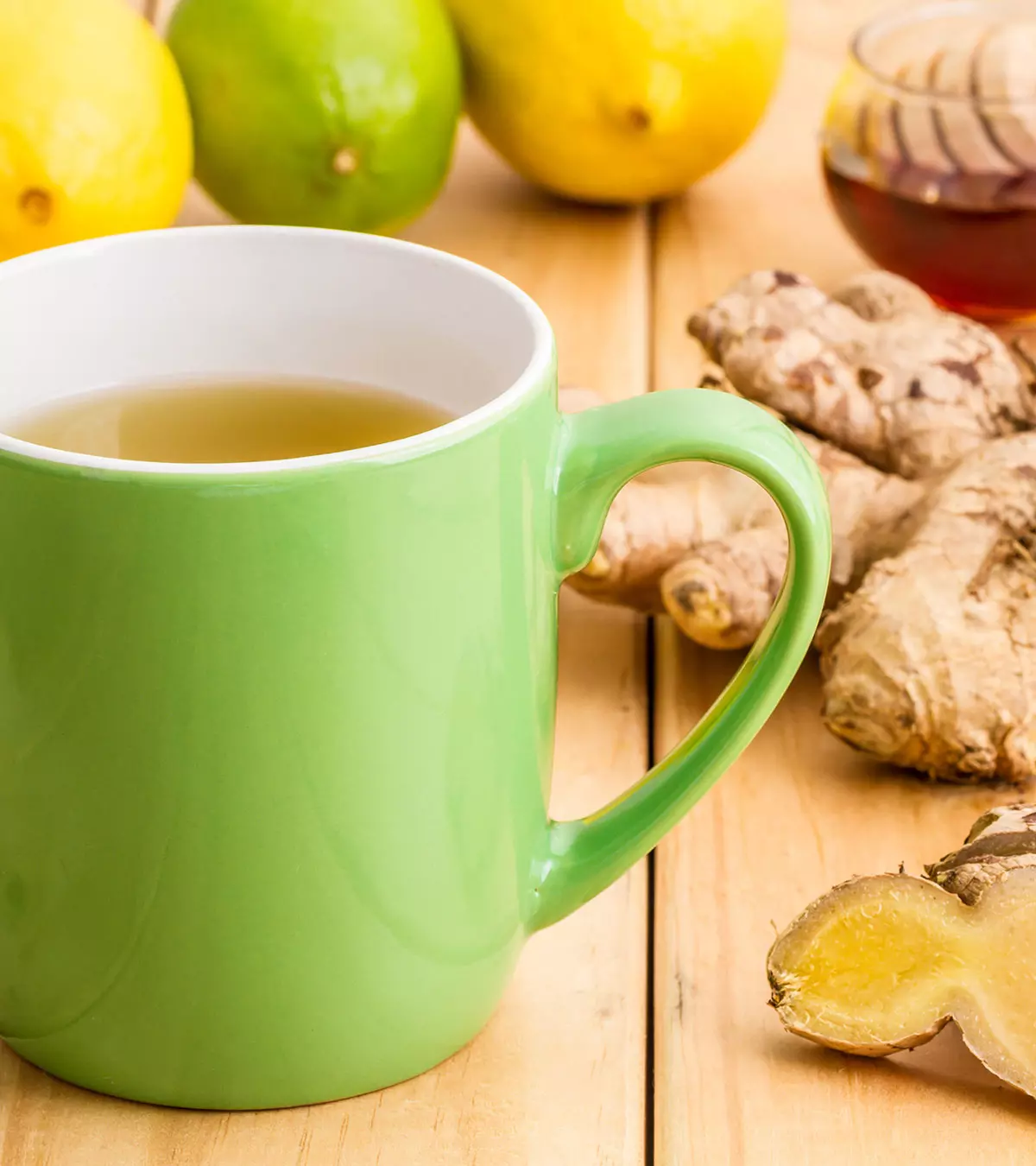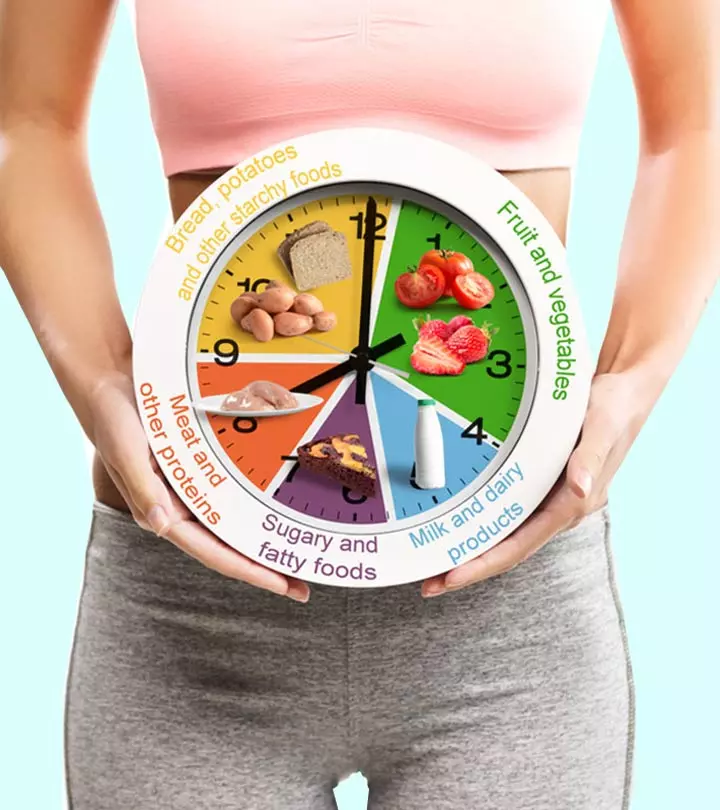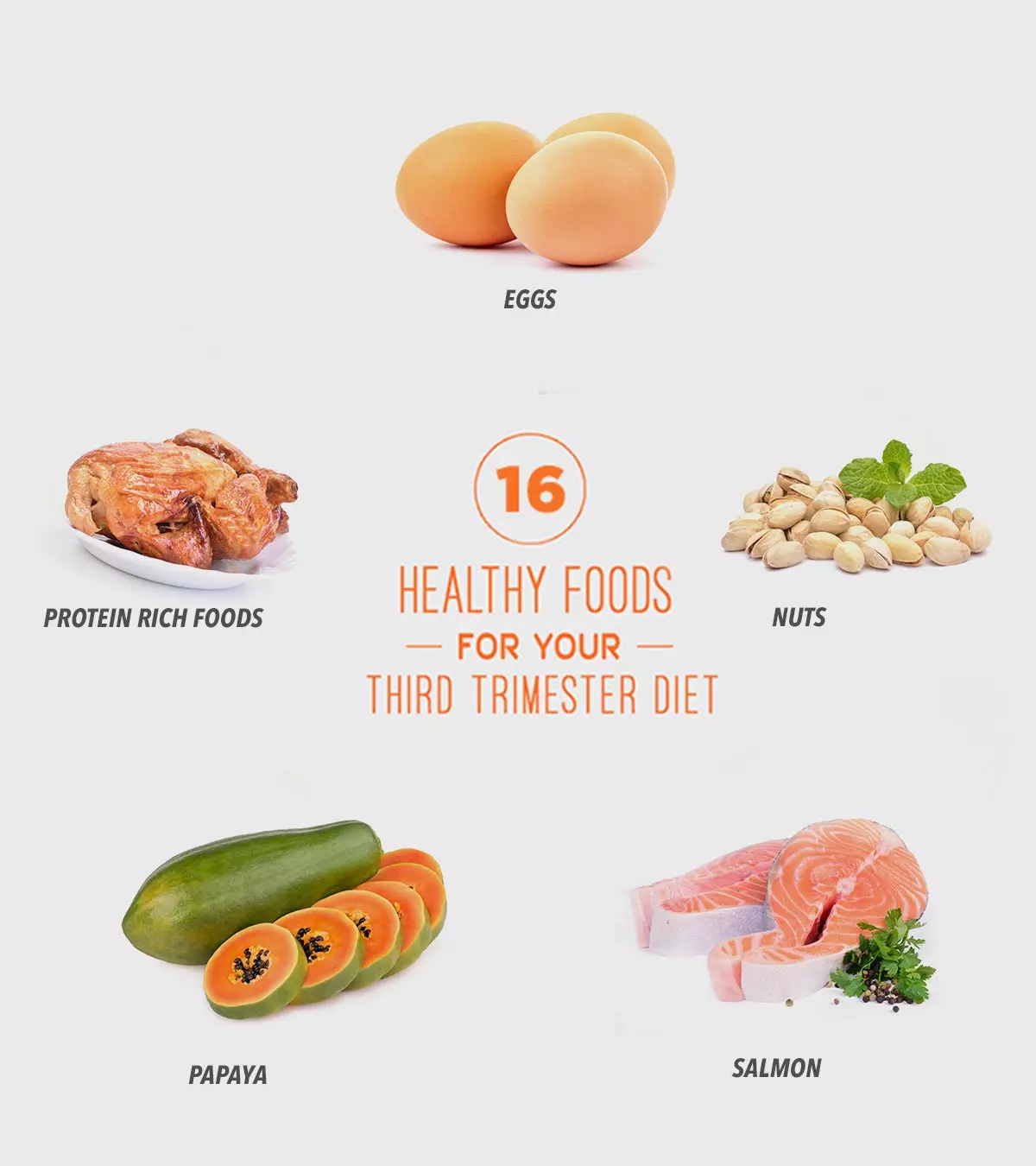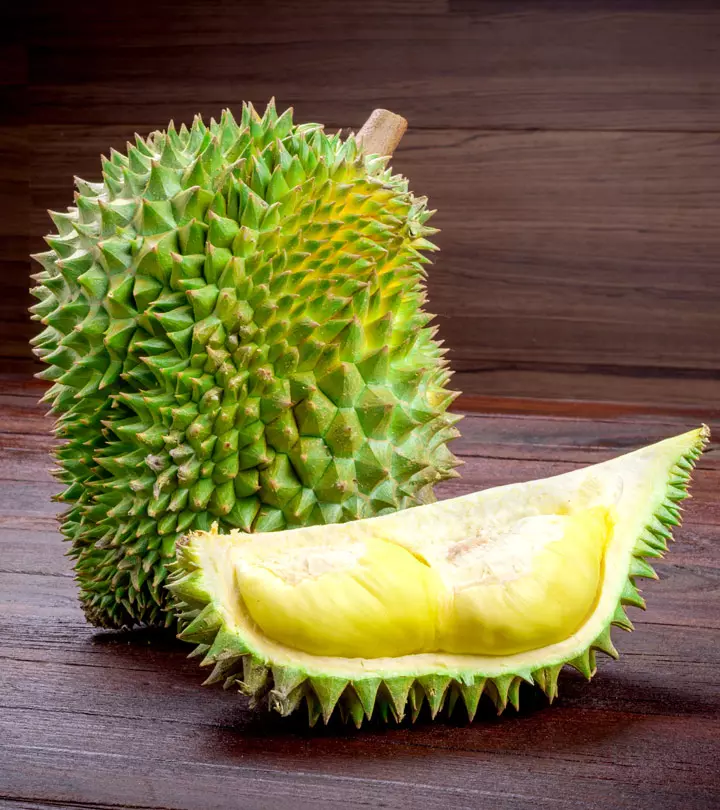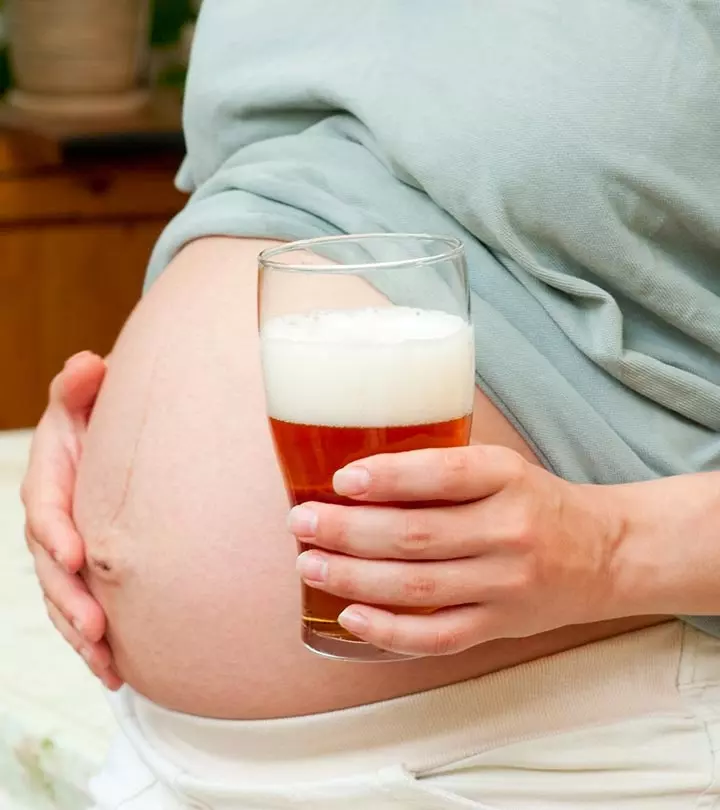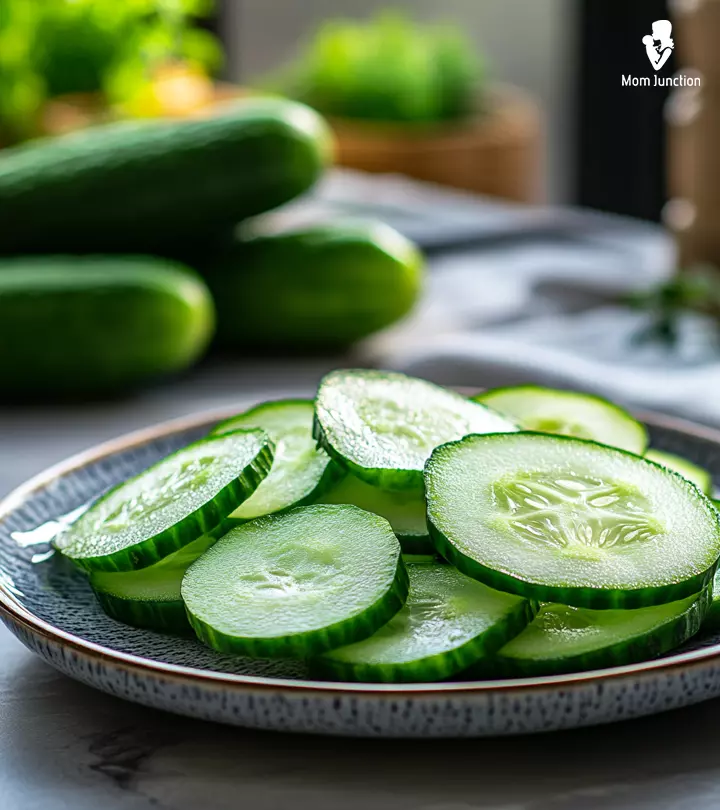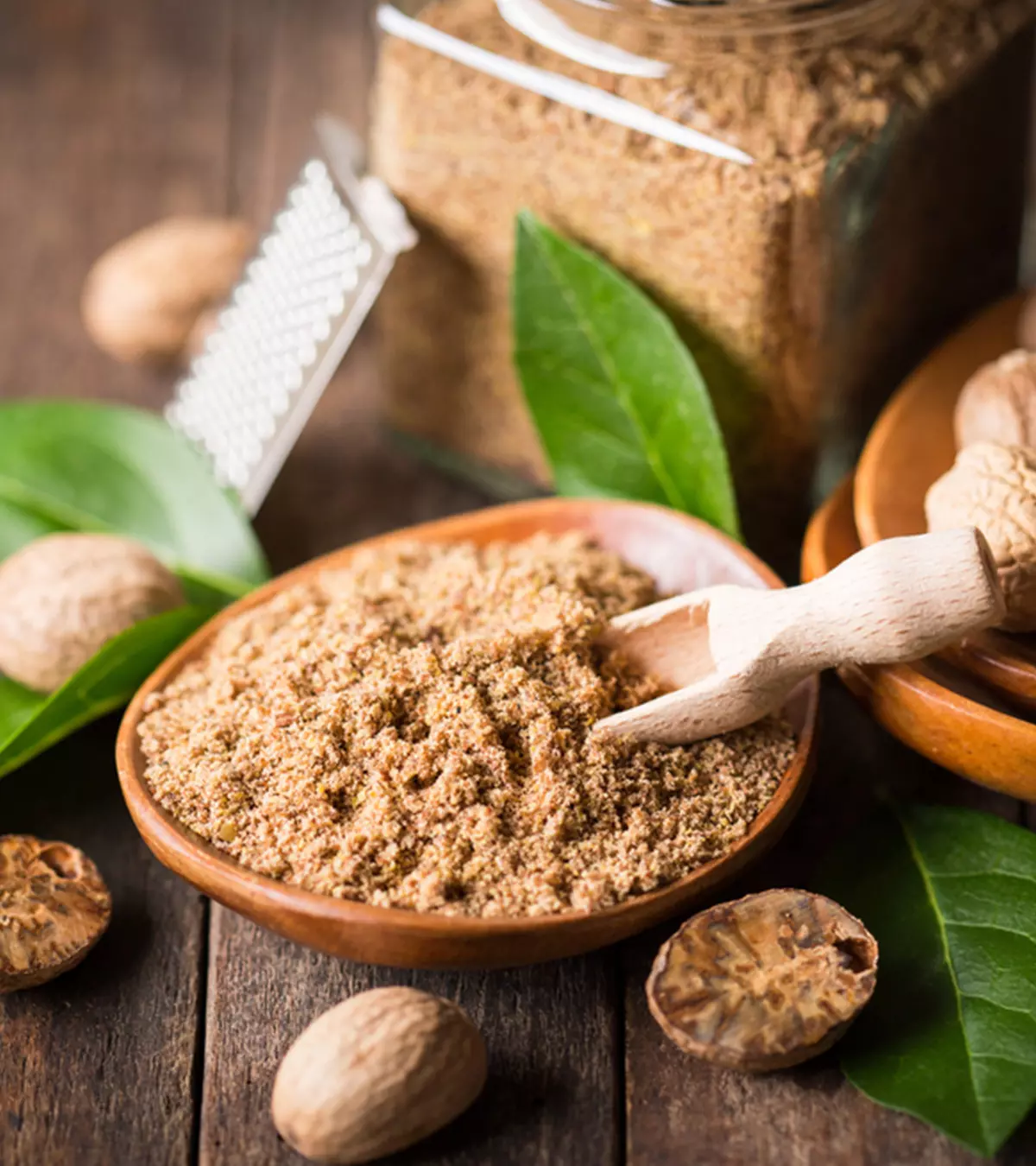
Image: ShutterStock
The 1st-month pregnancy diet is crucial for the development of a healthy baby. However, unfortunately, women often find out they are pregnant only after having missed a period, and by the time they realize this, they have mostly crossed the first month.
So, it would help if you start a healthy and pregnancy-safe diet as soon as you begin planning to conceive and have a family. This will help ensure a safe pregnancy.
Read on as we tell you about some nutritious, healthy foods you should include in your prenatal nutrition plan and diet chart during the first month and the foods you should avoid.
Key Pointers
- Expecting mothers should include folic acid-rich foods such as green leafy vegetables and lentils for the neural development of the fetus.
- Calcium and vitamin C aid fetal heart, teeth, and bone development.
- Lean meat provides the necessary iron and protein for hemoglobin and blood to meet the fetus’s demand.
- Soft cheeses, raw eggs, undercooked meat, and high-mercury fish should be avoided during the first month of pregnancy.
Foods To Include In The First Month Of Pregnancy
Proper nutrition during the first month of pregnancy is crucial for the healthy development of the fetus. A balanced diet not only supports the mother’s health but also reduces the risk of complications during pregnancy. It is vital to prioritize nutrient-dense foods to meet the increased nutritional needs during this time. Foods from the following groups must be a part of your diet in the first month of pregnancy.
- Food to eat during pregnancy includes green leafy vegetables, legumes, avocado, lentils, fortified bread, orange juice, beans, and cereals that are rich in folic acid (1). Consuming folic acid in pregnancy is an essential nutrient for the development of the brain and spinal cord of the fetus. It helps in blood formation during pregnancy and preventing neural tube defectsiSevere birth abnormalities of the central nervous system that develop early during pregnancy in the baby.
- Milk and milk products such as yogurt and cheese are a good source of calcium. Calcium-rich foods during pregnancy are essential for proper growth and development of the fetal heart and nerve functions and helps in developing strong bone, teeth, and muscles.
- Fruits and vegetables including the yellow and red ones, cabbage, broccoli, strawberries, citrus, and Brussels sprouts are rich in vitamin C, which is essential for the baby’s teeth and bone development.
- Add fiber-rich foods like oats, whole grain bread, legumes, fruits, and vegetables in your diet for relieving constipation and regularizing the bowel movement.
- Lean meat is a good source of iron and protein, which helps in making hemoglobin. Also, it is essential to meet the blood supply demand by the fetus.
- Seeds and nuts are protein-rich foods that help in developing the fetal tissues and repairing breast and uterine muscles. They also aid in meeting the blood requirements during pregnancy.
- Whole grains, enriched refined grains, cereals, bread, pasta, and fruits are rich in carbohydrates. During pregnancy, you need 175-210 gms of carbohydrates per day. Crackers, another source of carbohydrates, also help to manage nausea and morning sickness during pregnancy.
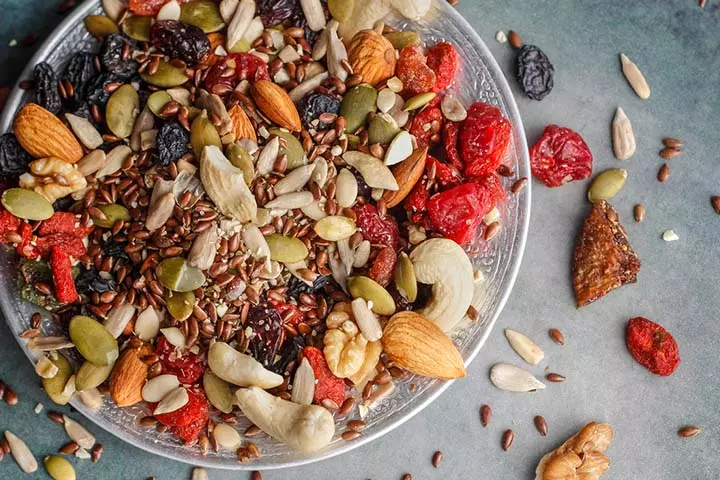
- Iodized salt is the primary source of iodine, which is essential for the baby’s nervous system and brain development.
- Fortified bread and cereals are rich sources of fiber and B vitamins, which are necessary for the fetal brain and nerve development.

- The primary source of vitamin D is sunlight. However, it may not meet the required daily allowance during pregnancy. So, include foods like vitamin D fortified milk, salmon, tuna, mackerel, eggs, mushrooms, and cereal.
- Dietary supplements that your ob-gyn might suggest to supplement any deficiency in nutrition.
- Include healthy fats from sources like avocados, nuts, and olive oil, which are important for fetal brain development.
 Point to consider
Point to considerRecommended daily intake of nutrients during pregnancy
| Nutrients | RDA (Recommended daily allowance) |
|---|---|
| Calcium | 1300mg (age 14-18 years) 1000mg (age 19-50 years) |
| Iron | 27mg |
| Vitamin C | 80mg (age 14-18 years) 85mg (age 19-50 years) |
| Vitamin D | 600 IU |
| Folic acid | 600µg |
| Protein | 60gm (3) |
| Iodine | 150µg (through iodine supplements taken in the form of potassium iodide) (4) |
(2)During pregnancy, you may develop a craving for foods that may not be healthy for the pregnancy.
Keep reading to know which foods you need to avoid.
Foods to avoid in the first month of pregnancy
Here are some foods to avoid during pregnancy:
- Avoid soft cheeses (brie, ricotta, camembert, blue cheese, and feta), bean sprouts, sandwich meats, pre-made pâté, and salads, as they may contain the listeriaiA bacterium that grows in raw or unpasteurized foods and can cause a serious pregnancy complication called listeriosis bacteria (5).

- Raw eggs may contain salmonella and should be avoided.
- Avoid undercooked meat and poultry as they may contain E. coli, Campylobacter, salmonella, and Toxoplasma gondiii A disease-causing parasite bacteria. According to the Centers for Disease Control and Prevention (CDC), salmonella infection is the most common food-borne disease and one in every 25 packages of chicken found at the stores are contaminated with salmonella, making chicken a major source of the infection.
- Avoid swordfish, shark, tilefish, king mackerel as they contain high levels of mercury. Also, avoid raw fish like sushi and sashimiiA Japanese dish made of finely sliced fish or seafood . Freshwater salmon, bass, bluefish, trout, pike, and walleye may contain high levels of PCB (polychlorinated biphenyls, which are highly toxic industrial compounds) and should be avoided (6).
- Do not consume unpasteurized juice, cider, and milk as they may contain E.coli or listeria bacteria (1).
- Raw sprouts may contain E.coli salmonella.
- Luncheon meat and cold hotdogs are a good host for listeria.
- Avoid consumption of alcohol as it may affect fetal growth.
- Avoid fruits such as pineapple and raw papaya, which are known to induce contractions (7).
Also,
- Limit the intake of foods such as pastries, cakes, pies, processed meats, pizza, commercial burgers, and fried foods that may have high amounts of saturated fats (5).
- Limit processed foods that may contain harmful additives and preservatives, which can negatively impact fetal development.

- Limit the intake of foods that contain added sugar (like confectioneries, energy drinks, sweetened soft drinks) and salt.
- Limit the intake of caffeine as more than 200-300mg or 2-3 cups of coffee a day can cause miscarriage (8) (9).
 Quick fact
Quick factIt is essential that you choose the right food and eat the right amounts during pregnancy. Next, we give you a few diet tips for the first month of pregnancy.
First-month pregnancy diet tips

Here are some diet tips to follow during the first month of pregnancy:
- Drink plenty of fluids and stay hydrated.
- Make sure you take the prenatal vitamins along with your diet.
- Eat smaller meals at regular intervals.
- Cut down on fast food during pregnancy.
- Avoid oily and spicy foods that aggravate heartburn.
- Keep healthy snacks on hand to satisfy cravings.
Most women already cross their first month by the time they become aware of their pregnancy. Therefore, if you are planning to conceive or got to know that you are pregnant, following a balanced diet will ensure that your unborn baby receives the nutrients required for their healthy development. Try various delicious food items that are entirely pregnancy-safe and ensure you drink plenty of water for sufficient hydration. You must also understand which foods you must avoid in your first-month pregnancy diet and make appropriate dietary choices.
Frequently Asked Questions
1. How much water should I drink during my first month of pregnancy?
You may have the usual amount of water you usually had when not pregnant. The general water intake recommendations for the first month of pregnancy are 8 and 12 cups (64 and 96 ounces) of water daily (15).
2. What healthy snacks can I eat during my first month of pregnancy?
Healthy snack options for pregnant women include fruits, vegetables, whole-grain crackers with hummus, low-fat yogurt, and nuts (16).
3. How many calories should I consume during my first month of pregnancy?
During the initial six months of pregnancy, women do not require extra food to meet their baby’s needs. It is suggested that women consume around 2,000 calories per day. However, an additional 200 calories may be necessary during the third trimester based on activity levels (17).
4. What are some tips for managing food cravings during the first month of pregnancy?
When you feel like you want to eat something, it’s helpful to figure out what you’re craving. For example, if you want something crunchy, have carrots or almonds. If you want something sweet, try frozen banana-chocolate-peanut butter bites. You might have strong food aversions too. It can be hard to control cravings and manage aversions, but it’s essential to avoid gaining too much weight by making healthy choices and proper meal planning (18). Eat small frequent meals to overcome fatigue, keep your energy levels up, and keep morning sickness at bay. Take medical advice to know what is good for you before you make a prenatal diet plan.
Infographic: Avoid Consuming These Foods In The First Month Of Pregnancy
Are you planning a pregnancy or have you just learned about the good news? Then, besides prioritizing healthy eating, you must also be aware of the foods you should avoid. This infographic presents foods and drinks best avoided in the first month of your pregnancy. So, have a look and make a note.
Some thing wrong with infographic shortcode. please verify shortcode syntax
Illustration: 1st Month Pregnancy Diet: What To Eat And Avoid?

Image: Dalle E/MomJunction Design Team
References
1. Healthy Eating Tip Of The Month; University Of Michigan
2. Nutrition During Pregnancy; ACOG
3. Michelle A. Kominiarek, et al.,; Nutrition Recommendations in Pregnancy and Lactation; NCBI (2016)
4. Angela M. Leung, Elizabeth N. Pearce, et al.,; AAP Recommendations on Iodine Nutrition During Pregnancy and Lactation; American Academy of Pediatrics (2019)
5. Healthy eating during your pregnancy; National Health and Medical Research Council
6. Pregnancy: Nutrition; Cleveland Clinic (2019)
7. Ghosh Debosree and Ghosh Suvendu; Forbidden Foods for Healthy Pregnancy; IJSRR (2018)
8. Caffeine; OTIS
9. Pregnancy Precautions: FAQs; The Nemours Foundation (2019)
9. Pregnancy Precautions: FAQs; The Nemours Foundation (2019)
10. 10 healthy foods to consume during pregnancy; KimsHealth
11. Have a healthy diet in pregnancy; NHS UK
12. My plate for pregnancy; Marshfield Clinic Health System
13. Foods to avoid when pregnant; American Pregnancy Association
14. Food safety for pregnant women; Government Of Canada
15. How much water should I drink during pregnancy?; ACOG
16. 5 Snack Foods to Eat While Pregnant; Johns Hopkins Medicine
17. How much should I eat during pregnancy?; Tommy’s
18. Coping With Cravings, And Other Tips On Eating While Pregnant; National Public Radio
Community Experiences
Join the conversation and become a part of our nurturing community! Share your stories, experiences, and insights to connect with fellow parents.
Read full bio of Subhashis Samajder
Read full bio of Sakshi Mishra
Read full bio of Swati Patwal
Read full bio of Dr. Joyani Das





